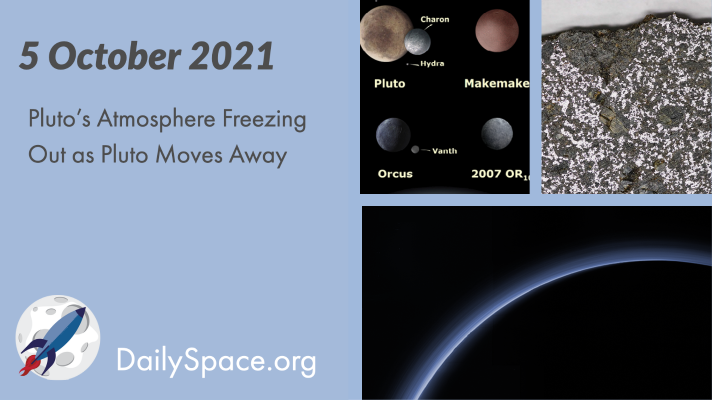
Oct 6, 2021 | Asteroids, Comets, Daily Space, Mars, Our Solar System, Pluto & Charon, TNOs
Scientists analyzed the results of a stellar occultation when Pluto passed in front of a distant star and found that Pluto’s atmosphere is freezing to the surface as the planet moves away from the Sun. Plus, an interview with Dr. Kat Volk regarding Transneptunian space and the possibility of Planet 9.
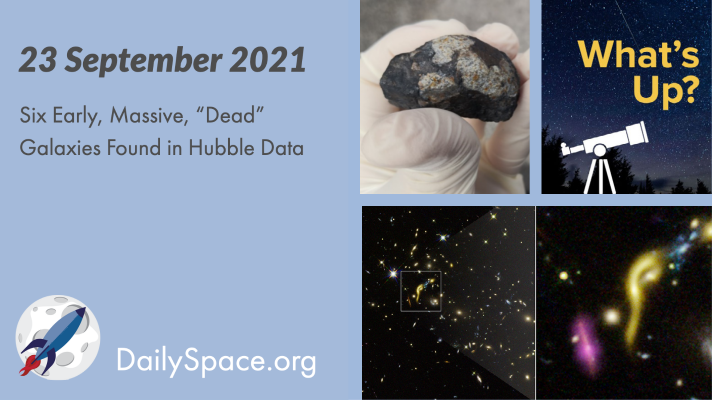
Sep 24, 2021 | Asteroids, Daily Space, Earth, Galaxies, Mars, Moon, Neptune, Observatories, Rovers, Sky Watching, Supernovae, Uranus
While searching for objects deep in the universe’s history, at about three billion years of age, researchers found six massive but “dead” galaxies in Hubble and ALMA data, a strange finding for a time period known for prolific star birth. Plus, planetary science from the EPSC2021 conference and this week’s What’s Up.
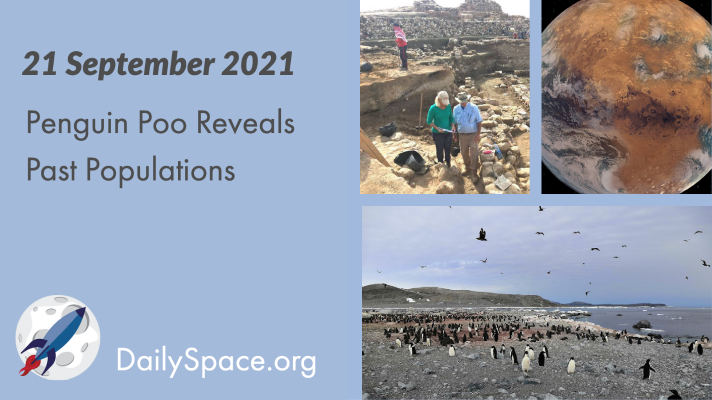
Sep 22, 2021 | Asteroids, Climate Change, Daily Space, Earth, Mars
A study of the feces of Adélie penguins from Inexpressible Island on the Ross Sea of the Antarctic sheds new light on how the avian population may survive during climate change. Plus, the possibility for life on Mars and understanding destructive meteors.
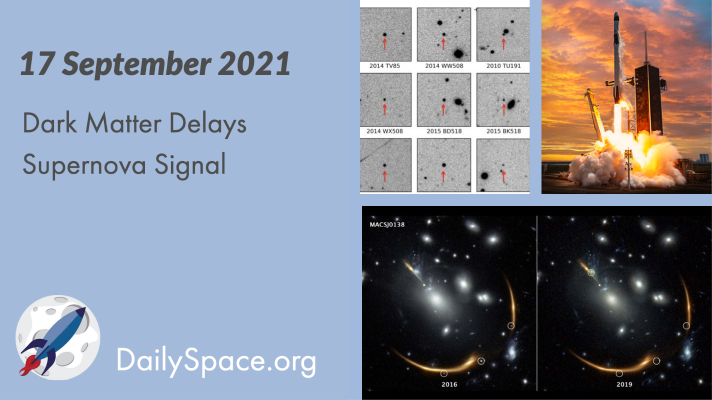
Sep 20, 2021 | Asteroids, Climate Change, Comets, Cosmology, Crewed Space, Daily Space, Dark Matter, Earth, Galaxies, Review, Space China, Spacecraft, SpaceX, Supernovae
A supernova first observed in 2016 will be replayed in a few years because of the light’s journey through a galaxy cluster and how dark matter gravitationally warps space-time. Plus, inactive centaurs, a Scottish ice wall, and a review of “Countdown: Inspiration4 Mission to Space”.
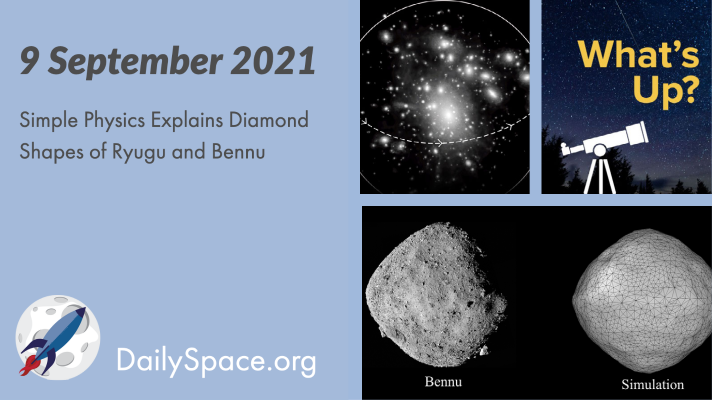
Sep 10, 2021 | Asteroids, Daily Space, Dark Matter, Galaxies, Mercury, Sky Watching, White Dwarfs
Using a simple model based on granular physics, like those used for modeling sand or sugar deposits, scientists have recreated the diamond shape of asteroids Ryugu and Bennu in computer simulations. Plus, the origins of loner dwarf galaxies and this week’s What’s Up.
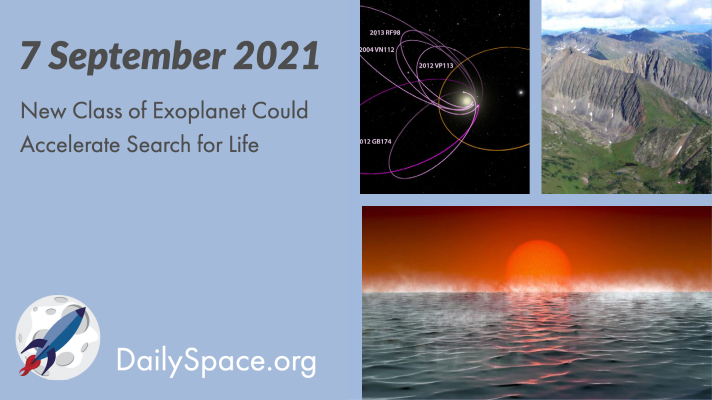
Sep 8, 2021 | Asteroids, Astrobiology, Climate Change, Daily Space, Earth, Exoplanets, Galaxies, Mars, Neutron Stars / Pulsars, Our Solar System, Perseverance, Supermassive Black Holes, Supernovae, Very Large Array
Hycean worlds have hydrogen-rich atmospheres and are covered in oceans, making them prime candidates for the search for life outside our own solar system. These worlds are also more numerous and easier to find than Earth-like exoplanets. Plus, an update on the search for Planet 9 and how volcanoes may provide a climate safety valve.








 We record most shows live, on Twitch. Follow us today to get alerts when we go live.
We record most shows live, on Twitch. Follow us today to get alerts when we go live.